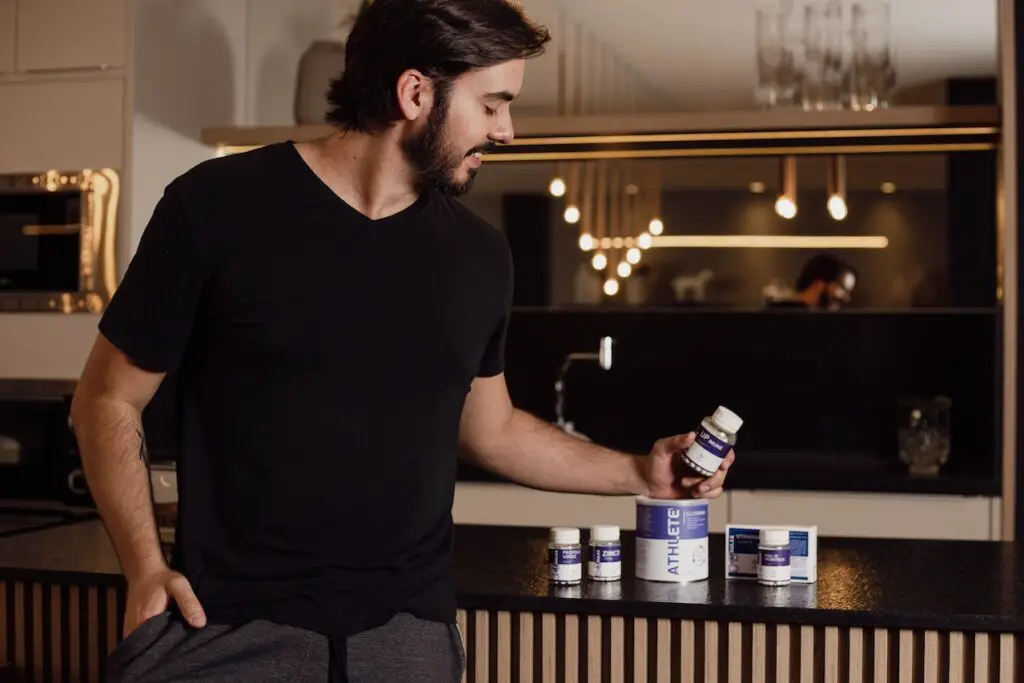Probiotics are live microorganisms that offer numerous health benefits when consumed in adequate amounts. These microorganisms can be found in fermented foods and supplements. While probiotics are known for their benefits to the digestive system, they also have a positive effect on skin health. In this blog post, we will explore the benefits of taking probiotic supplements for skin health.
What are Probiotics?
Probiotics are live microorganisms that are beneficial for human health. They are found in fermented foods and supplements. The most common types of probiotics include Lactobacillus and Bifidobacterium. Probiotics can be found in yogurt, kefir, sauerkraut, kimchi, and other fermented foods. They are also available in supplement form, which can be taken orally or applied topically.
Related Article: The Benefits of Taking Hyaluronic Acid Supplements for Skin and Joint Health
How do Probiotics benefit skin Health
The skin is the body’s largest organ and plays a critical role in protecting the body from environmental factors such as pollution, UV rays, and toxins. When the skin is healthy, it functions well, and the body is protected from various diseases and conditions.
Probiotics have several benefits for skin health. They help to balance the skin’s microbiome, which is the community of microorganisms that live on the skin’s surface. When the microbiome is balanced, the skin is healthy, and the body is protected from various diseases and conditions.
Probiotics also have anti-inflammatory properties, which can help to reduce inflammation in the skin. Inflammation is a common cause of many skin conditions, including acne, eczema, and rosacea. By reducing inflammation, probiotics can help to alleviate the symptoms of these skin conditions.
Probiotics can also help to strengthen the skin’s barrier function. The skin’s barrier function is critical in protecting the body from external factors such as pollution, UV rays, and toxins. When the barrier function is weakened, the skin is more susceptible to damage and infection. Probiotics can help to strengthen the barrier function, which can help to protect the skin and keep it healthy.
Related: The Benefits of Prebiotic and Probiotic Supplements for Gut Health
Benefits of taking probiotic supplements for skin health
Reduces Acne
Acne is a common skin condition that affects many people. It occurs when hair follicles become clogged with oil and dead skin cells. This can lead to the formation of pimples, blackheads, and whiteheads.
Probiotics have been shown to reduce acne. A study published in the Journal of Clinical and Aesthetic Dermatology found that taking a probiotic supplement for 12 weeks reduced acne by 32%. Another study published in the Journal of Microbiology and Biotechnology found that applying a probiotic topically reduced acne by 89%.
Probiotics help to reduce acne by balancing the skin’s microbiome, reducing inflammation, and strengthening the skin’s barrier function.
Improves Eczema
Eczema is a chronic skin condition that causes the skin to become dry, itchy, and inflamed. It is a common condition that affects many people.
Probiotics have been shown to improve eczema. A study published in the Journal of Allergy and Clinical Immunology found that taking a probiotic supplement for 12 weeks reduced eczema symptoms by 19%. Another study published in the British Journal of Dermatology found that applying a probiotic topically improved eczema symptoms by 83%.
Probiotics help to improve eczema by balancing the skin’s microbiome, reducing inflammation, and strengthening the skin’s barrier function.
Reduces Rosacea
Rosacea is a common skin condition that causes the skin to become red and inflamed. It is a chronic condition that can be difficult to treat.
Probiotics have been shown to reduce rosacea. A study published in the Journal of Cosmetic Dermatology found that taking a probiotic supplement for 12 weeks reduced rosacea symptoms by 48%. Probiotics help to reduce rosacea by balancing the skin’s microbiome, reducing inflammation, and strengthening the skin’s barrier function. By reducing inflammation, probiotics can help to alleviate the redness and irritation associated with rosacea.
Helps with skin aging
As we age, our skin begins to show signs of aging, such as fine lines, wrinkles, and age spots. Probiotics can help to slow down the aging process and keep the skin looking youthful.
Probiotics have been shown to help with skin aging. A study published in the Journal of the American Academy of Dermatology found that taking a probiotic supplement for 12 weeks improved skin elasticity and reduced wrinkles. Another study published in the Journal of Drugs in Dermatology found that applying a probiotic topically improved skin hydration and reduced the appearance of fine lines and wrinkles.
Probiotics help to slow down the aging process by reducing inflammation, strengthening the skin’s barrier function, and increasing collagen production. Collagen is a protein that is essential for skin health and elasticity.
Improves skin Hydration
Skin hydration is essential for maintaining healthy skin. When the skin is well hydrated, it is plump, firm, and supple. Probiotics can help to improve skin hydration.
Probiotics have been shown to improve skin hydration. A study published in the Journal of Clinical, Cosmetic, and Investigational Dermatology found that taking a probiotic supplement for 12 weeks improved skin hydration by 37%. Another study published in the International Journal of Cosmetic Science found that applying a probiotic topically improved skin hydration by 32%.
Probiotics help to improve skin hydration by strengthening the skin’s barrier function and increasing the production of natural moisturizing factors. This can help to keep the skin well hydrated and healthy.
Probiotics offer numerous benefits for skin health. They can help to reduce acne, improve eczema and rosacea, slow down the aging process, and improve skin hydration. When choosing a probiotic supplement for skin health, it is essential to look for a high-quality product that contains a variety of probiotic strains. It is also important to consult with a healthcare professional before starting any new supplement regimen. By taking probiotic supplements for skin health, you can improve the health and appearance of your skin and promote overall wellness.

